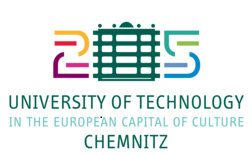Analysis of the Relationship among Leadership Styles, School Culture and Student Achievement
DOI:
https://doi.org/10.71514/jssal/2021.19Keywords:
School culture, multifactor & transformational leadership, student's achievementAbstract
This research aims to investigate the correlations among school culture, and key leadership style and student achievement, and the relationships between school culture and student achievement. To achieve the purpose of the research, two key questions, four sub-questions, and two hypotheses were developed to uncover the level of student achievement as reflected in their general point average and to find the relationship between the Multifactor leadership and school culture variables. Because of the nature of the study, the descriptive analysis method was used, which is one of the quantitative research methods. The key tool in collecting the data was a structured questionnaire, which was custom-made corresponding to the problem set. Further data were obtained from interviews each time warranted within the scale of the purpose of the research; Multifactor Leadership Questionnaire (MLQ) and School Culture Survey were utilized. The findings of the research were analyzed and presented as tables using the SPSS-10 package program. The research universe of this study was selected privately-owned schools which have elementary and high school divisions in Metro Manila and Zamboanga City, Philippines. A total of 38 school administrators and 111 teachers were involved in this work. As for finding, there is no significant relationship between multifactor leadership and student achievement even the correlation that exists between the two variables is high.
Downloads
References
Allbright, T., & Hough, H. (2020). Measures of SEL and School Climate in California. State Education Standard, 20(2), 28.
Antoniou, A. S., &Gioumouki, M. (2018). Leadership and School Culture of Mainstream and Special Primary Schools. International Journal of Academic Research in Business and Social Sciences, 8(5), 401-416.
Atmowardoyo, H. (2018). Research methods in TEFL studies: Descriptive research, case study, error analysis, and R & D. Journal of Language Teaching and Research, 9(1), 197-204
Berkovich, I. (2016). School leaders and transformational leadership theory: time to part ways? Journal of Educational Administration, 2 2016, 54(5), 609-622
Barnett, K., & McCormick, J. (2003). Vision, relationships, and teacher motivation: A case study. Journal of Educational Administration, 41(1), 55-73.
Barnett, K., & McCormick, J. (2004). Leadership and individual principal-Teacher relationships in schools. Educational Administration Quarterly, 40(3), 406-434.
Barnett, K., McCormick, J., & Conners, R. (2001). Transformational leadership in schools: Panacea, placebo, or problem. Journal of Educational Administration, 39(1), 24-46.
Bass, B., & Avolio, B. (1994). Improving organizational effectiveness through transformational leadership. Thousand Oaks, CA: Sage Publications.
Brophy, J. (1998). Motivating students to learn. Boston: McGraw Hill.
Brown, J. (1993). Leadership for school improvement. Emergency Librarian, 20(3), 8-20.
Bulach, C., Boothe, D., & Pickett, W. (2006). Analyzing the Leadership Behavior of School Principals. International Journal of Educational Leadership Preparation, 1(1), n1.
Davis, J. R. (2003). Change: Moving forward gracefully. In J. Davis (Ed.), Learning to lead: A handbook for postsecondary administrators (pp. 151-174). Westport, CT: American Council on Education and Praeger Publishers.
Davis, S. H. (1998). Superintendents’ perspectives on the involuntary departure of public-school principals: The most frequent reasons why principals lose their jobs. Education Administration Quarterly, 34, 58-90.
Ekici, D. (2021). Prediction of Narcissistic Personality Tendencies in University Students in Terms of Some Variables. Journal of Research in Social Sciences and Language, In Progress .doi. http://dx.doi.org/10.20375/0000-000D-FE62-7.
Gruenert, S., & Valentine, J. (1998). School culture survey.Columbia, MO: Middle Level Leadership Center, University of Missouri.
Gruenert, S. (1998). Development of a school culture survey. Unpublished doctoral dissertation, University of Missouri, Columbia, MO.
Kalkan, Ü., AltınayAksal, F., Altınay Gazi, Z., Atasoy, R., &Dağlı, G. (2020). The relationship between school administrators’ leadership styles, school culture, and organizational image. Sage Open, 10(1), 2158244020902081.
Leithwood, K. (1992b). Transformational leadership: Where does it stand?
Education Digest, 58(3), 17-20.
Leithwood, K., &Jantzi, D. (1999b). Transformational school leadership effects: A replication. School Effectiveness and School Improvement, 10(4), 451-479.
Leithwood, K., Day, C., Sammons, P., Harris, A., & Hopkins, D. (2006). Successful school leadership: what it is and how it influences pupil learning (Research Report 800). Londres: Department for Education and Skills, DfES.
Leithwood, K. (1994). Leadership for school restructuring. Educational Administration Quarterly, 30(4), 498-518.
Maher, M. C. (2000). Principal leadership and teacher empowerment as mediated by school culture. Unpublished doctoral dissertation, University of Missouri, Columbia.
Maher, M. C., Lucas, S. E., & Valentine, J. W. (2000). A model for understanding the influence of principal leadership upon teacher empowerment as mediated by school culture. Paper presented at the meeting of the American Educational Research Association, Seattle, WA.
Silins, H. & Mulford, B. (2002). Schools as learning organizations: the case for system, teacher, and student learning. Journal of Educational Administration, 40, 425 – 446
Wilen, W., Ishler, M., Hutchison, J., &Kindsvatter, R. (2000). Dynamics of effective teaching (4th ed.). New York: Longman.
Yukl, G. (2006). Leadership in Organizations (6th ed.). Upper Saddle River, NJ: Pearson/Prentice Hall.
Waruwu, H., Asbari, M., Purwanto, A., Nugroho, Y. A., Fikri, M. A. A., Fauji, A., &Dewi, W. R. (2020). The Role of Transformational Leadership, Organizational Learning, and Structure on Innovation Capacity: Evidence from Indonesia Private Schools. EduPsyCouns: Journal of Education, Psychology and Counseling, 2(1), 378-397.
Velarde, J. M., Ghani, M. F., Adams, D., & Cheah, J.-H. (2020). Towards a healthy school climate: The mediating effect of transformational leadership on cultural intelligence and organizational health. Educational Management Administration & Leadership. https://doi.org/10.1177/1741143220937311
Downloads
Published
How to Cite
Issue
Section
License
Copyright (c) 2021 Yusuf Ozdemir

This work is licensed under a Creative Commons Attribution-NonCommercial 4.0 International License.
The work is made available under the terms of the Public Offer and the Creative Commons Attribution 4.0 International License (CC BY 4.0). This license allows anyone to reproduce, distribute, and adapt the material in any medium or format, including for commercial purposes, provided that proper credit is given to the creator(s) and the original source.












